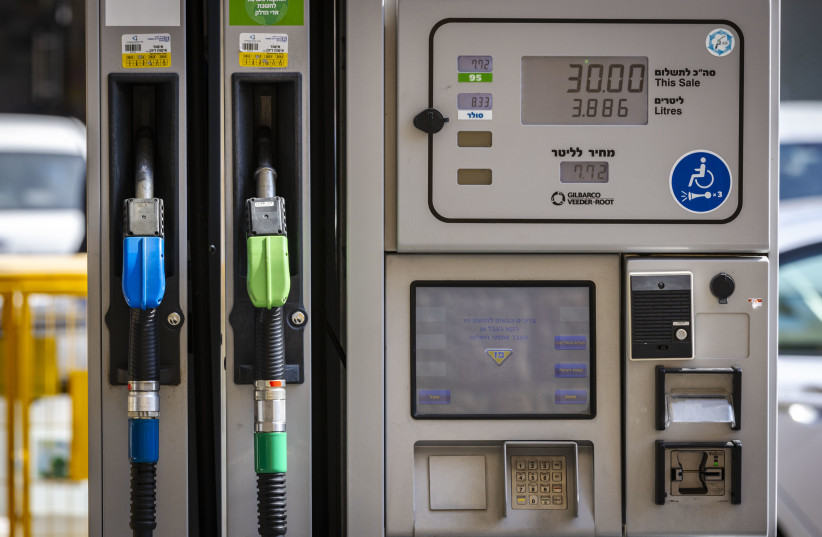Earlier this week, Prime Minister Yair Lapid announced that gas prices would finally be going down from August, a temporary end at least to the month-over-month increase that has plagued pump-goers for most of 2022.
Why is gas so expensive in Israel?
In the United States, gas prices have also increased, but when compared, Israeli gas is far more expensive than in the US where the average price is $4.35 per gallon. In Israel a gallon would cost $8.85 at an Israeli pump - more than double.
The factors behind your fuel
The primary cause for the ridiculous price of fuel can be pinned on taxes: a staggering 51% of Israel’s gas price is taxes. In fact, just in taxes alone, the average Israeli pays 7.4% more than the average American at the pump – before factoring in other variables.

Another piece of the puzzle which explains why gas burns a big hole in your pocket in Israel comes to light when the factors that make up the total price of fuel are examined. Once these factors add up, the cost of fuel can reach some pretty wuthering heights.
The first factor is the refinery gate price, which is the maximum price a refinery can sell its fuel to gas stations for, typically determined by fuel prices in Europe. Added to that is Excise Tax, which varies depending on the nation’s consumer price index, and is updated every January, May, and September.
Today, excise tax on fuel amounts to 3.02 shekels per liter, which makes up about 36.5% of the final price at the pump on its own. The variable excise tax on fuel has recently been targeted by the Finance Ministry in order to compensate for current inflation in the Israeli economy.
From August 10, a NIS 1 reduction in excise tax will take effect until November 15. This is an escalation of a prior reduction of one half shekel, which is set to expire on August 9.
At this point, you have the total amount that gas is sold for in Eilat, which has no further fuel taxation. For those living far from that Red Sea paradise, Value Added Tax (or VAT), is a set-percentage tax on most goods and services in the country.
At present, VAT in Israel weighs in at 17%, just short of the nation’s record high of 18%, between 2013 and 2015. This additional 17% tax applies to all of the previous factors combined, including excise tax.
Vat's the way it goes
VAT has become such a prevalent feature of an Israeli’s day-to-day routine, they may not even think to question where it originated, but a flashlight has focused on the ugly bureaucratic menace.
The tax was first introduced to Israel in 1976, following the implementation of the Value Added Tax Law during the first Rabin government. In those idyllic times, VAT was set at 8%. VAT increased in two major steps during the 1980s and early 90s, until it settled into its modern range of 15-18%.
According to Dan Ben-David, head of the Shoresh Institution for Socioeconomic Research and an economist at Tel-Aviv University, there’s a simple principle behind the rise of fuel taxation. “If you tax it, they will pay,” said the professor.
“It’s a good moneymaker. Like with alcohol or tobacco (which are also affected by VAT), if I have nowhere else to go, then you can raise taxes to the sky, and people are still gonna pay – at least in the short term. You’re not going to all of a sudden find better transportation alternatives. You’re not going to be replacing your car tomorrow morning,” said Ben-David, noting that eventually consumers will adapt in order to pay less.
While it burns a hole in Israeli wallets, there is a silver lining. The tax goes to finance sorely-lacking transportation infrastructure. “Just imagine if we were paying American prices,” said Ben-David. “If gasoline was less expensive, and everybody was driving cars, we would be even more congested.”
“That's the bright side of an altogether bad picture that's due to dysfunctional governmental strategic thinking, planning and investing in the infrastructure.”
Dan Ben-David
